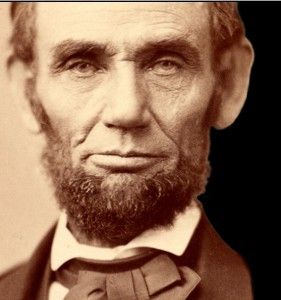 As Confederate General Robert E. Lee’s invasion of Maryland continues — albeit with spirited opposition from Union General George B. McClellan and invoking the anger of many Marylanders — U.S. President Abraham Lincoln, from the White House, hopes for the best.
As Confederate General Robert E. Lee’s invasion of Maryland continues — albeit with spirited opposition from Union General George B. McClellan and invoking the anger of many Marylanders — U.S. President Abraham Lincoln, from the White House, hopes for the best.
Lincoln, however, is not inactive as he waits for encouraging news from Maryland. For much of his adult life, Lincoln had cultivated friendships with preachers, even as he had refused to commit himself to any given church. As president, Lincoln establishes a White House open door policy with preachers. During these days of war, many clergy come to visit the president, especially Baptists, Presbyterians and Quakers. Many clergy of all three denominations are abolitionists, while the president’s boyhood faith roots are Baptist.
Ward Hill Lamon (1828-1893), long-time friend and informal bodyguard of Lincoln, after the war described the extent of the president’s interactions with clergy during the war:
Clergymen were always welcomed by Mr. Lincoln at the White House with the respectful courtesy due to their sacred calling. During the progress of the war, and especially in its earlier stages, he was visited almost daily by reverend gentlemen, sometimes as single visitors, but more frequently in delegations. He was a patient listener to the words of congratulation, counsel, admonition, exhortation, and sometimes reproof, which fell from the lips of his pious callers, and generally these interviews were entertaining and agreeable on both sides. It sometimes happened, however, that these visits were painfully embarrassing to the President. One delegation, for example, would urge with importunate zeal a strict observance of the Sabbath day by the army; others would insist upon a speedy proclamation of emancipation; while some recounted the manifold errors of commanding generals, complained of the tardy action of the government in critical emergencies, and proposed sweeping changes of policy in the conduct of the war.
Today, a group of Chicago clergyman from various denominations visit Lincoln and lobby for immediate emancipation of African slaves. Although having already privately determined to issue an emancipation proclamation at the earliest opportune moment, the president responds to the ministers that the time had not yet come.
The subject presented in the memorial is one upon which I have thought much for weeks past, and I may even say for months. I am approached with the most opposite opinions and advice, and that by religious men, who are equally certain that they represent the Divine will. I am sure that either the one or the other class is mistaken in that belief, and perhaps in some respects both. I hope it will be irreverent for me to say that if it is probable that God would reveal his will to others, on a point so connected with my duty, it might be supposed he would reveal it directly to me; for, unless I am more deceived in myself than I often am, it is my earnest desire to know the will of Providence in this matter. And if I can learn what it is I will do it! These are not, however, the days of miracles, and I suppose it will be granted that I am not to expect for a direct revelation. I must study the plain physical facts of the case, ascertain what is possible and learn what appears to be wise and right. The subject is difficult, and good men do not agree. For instance, the other day four gentlemen of standing and intelligence (naming one or two of the number) from New York called, as a delegation, on business connected with the war; but, before leaving, two of them earnestly beset me to proclaim general emancipation, upon which the other two at once attacked them.
Then;
A few days later, the delegates presented a report of their meeting, which concluded: “In bringing our interview to a close, after an hour of earnest and frank discussion, of which the foregoing is a specimen, Mr. Lincoln remarked: “Do not misunderstood me, because I have mentioned these objections. They indicate the difficulties that have thus far prevented my action in some such way as you desire. I have not decided against a proclamation of liberty to the slaves, but hold the matter under advisement. And I can assure you that the subject is on my mind, by day and night, more than any other. Whatever shall appear to be God’s will I will do. I trust that, in the freedom with which I have canvassed your views, I have not in any respect injured your feelings.
Source: “The Preachers,” Mr. Lincoln and Friends (link)


